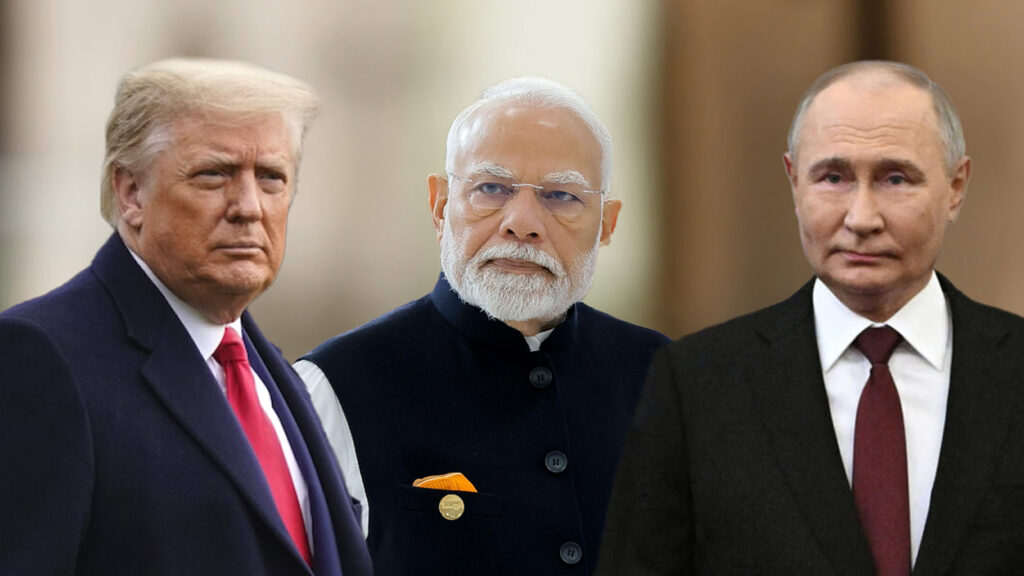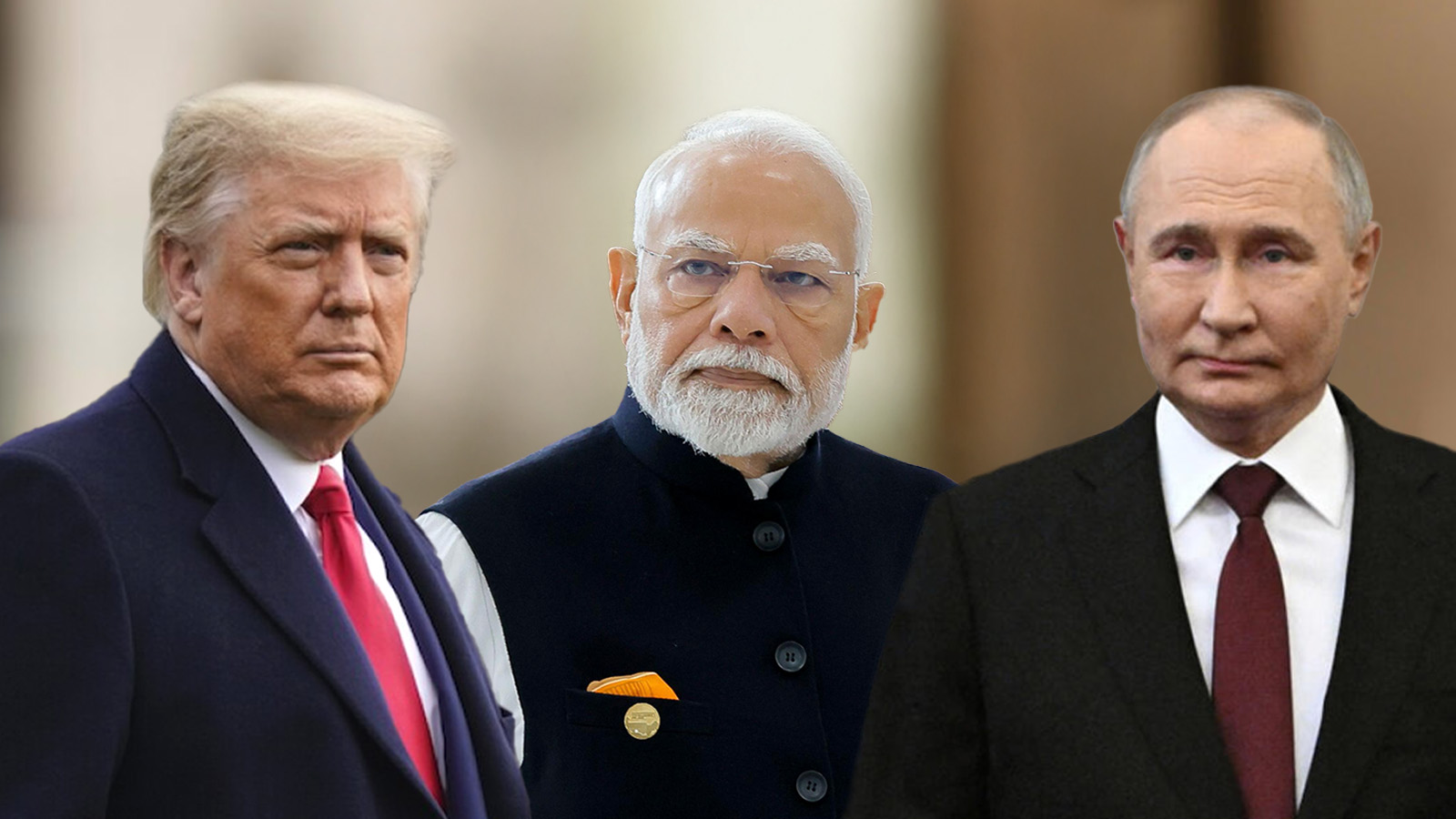
By K Raveendran
The market seems to have already done its arithmetic on the new US sanctions on two major Russian oil companies, Rosneft PJSC and Lukoil, gauging the immediate and medium-term consequences for energy supply lines stretching from Moscow to Mumbai. In a matter of hours, crude prices spiked, reflecting not just the tightening of sanctions but also the perception that India, one of the largest importers of Russian crude since 2022, might have to scale down or even suspend its purchases. Traders and analysts, often ahead of official confirmations, seem convinced that the days of discounted Russian barrels filling Indian refineries could be drawing to a close, at least for now.
Ever since Western sanctions drove Moscow to redirect its energy exports eastward, India emerged as one of Russia’s most dependable customers, snapping up millions of barrels of Urals crude at discounted rates. This realignment helped India manage inflationary pressures and maintain stability in domestic fuel prices while also giving Russia a crucial lifeline amid isolation from Western markets.
But the latest sanctions mark a tougher phase in Washington’s campaign to squeeze Russian revenues that fund the war in Ukraine. By targeting two pillars of Russia’s energy complex, the US has moved beyond symbolic restrictions into the heart of Moscow’s oil trade ecosystem. The ripple effects are already visible in Indian corporate corridors. Reports suggest that major refiners, including Reliance Industries, Bharat Petroleum, and Indian Oil Corporation, are examining alternative sourcing options and preparing to halt new Russian crude purchases to avoid entanglement with the sanctions regime.
The move puts Indian refiners in a tight spot. Over the past two years, Russian oil had grown to account for as much as 40 per cent of India’s total crude imports, a dramatic rise from less than 2 percent before the Ukraine war. The economics were compelling: deep discounts, cheaper freight via shadow fleets, and payments through non-dollar mechanisms made Russian barrels irresistible. But now, compliance concerns loom large. Refiners with exposure to Western banks, insurers, and shipping firms cannot afford to risk being blacklisted or losing access to the global financial system. Even if Indian refiners technically buy through intermediaries, the widening scope of sanctions makes it difficult to guarantee that the cargoes are clean of blacklisted entities.
The global oil market, sensing this fragility, reacted almost instantly. Brent crude futures climbed over 3 percent within a day of the announcement. Traders argue that while Russia will seek new buyers, perhaps in China or through opaque channels, the temporary disruption in supply chains will strain availability in Asia. For India, which imports over 85 percent of its crude requirement, even a small dip in Russian inflows could translate into higher domestic prices, import bills, and inflationary pressure.
At the same time, New Delhi finds itself once again walking a diplomatic tightrope. On one side stands its long-standing strategic partnership with Moscow, encompassing defence, energy, and nuclear cooperation. On the other is its deepening economic and technological engagement with the United States and its allies. The latest sanctions, though not directly aimed at India, make such diversification almost inevitable. Officials in South Block will now have to balance pragmatism with principle, ensuring energy security without triggering diplomatic friction.
Reliance Industries, the country’s largest private refiner, faces a unique dilemma. With sprawling global operations and exposure to US and European financial systems, it cannot afford to risk secondary sanctions. The same logic applies to state-run entities that rely on Western insurers for crude cargoes and tankers. Even if payment channels through rupees, dirhams, or yuan remain open, the sanctions’ reach has expanded to such an extent that logistics could become the new choke point. Ships carrying Russian oil could face denial of port access, difficulties in insurance coverage, or outright blacklisting if linked to Rosneft or Lukoil. This could make Russian crude not just politically sensitive but operationally unviable.
From Moscow’s perspective, the sanctions threaten to upend one of its most successful economic pivots since 2022. India and China had together become the mainstay of Russian oil exports, effectively replacing lost European demand. The Indian market, in particular, offered both volume and stability, with payments often routed through friendly intermediaries. Losing even a portion of that demand would compel Russia to offer steeper discounts or resort to a complex web of smaller intermediaries to keep its oil flowing. In the long run, this could erode profitability and further isolate Russia’s energy sector from mainstream commerce.
For India, the immediate question is how to fill the gap. Middle Eastern suppliers, especially Saudi Arabia, Iraq, and the UAE, could see an opportunity to regain market share. But their barrels are costlier, and production quotas under OPEC+ remain tightly managed. The return to pricier crude sources could widen India’s trade deficit, weaken the rupee, and add pressure on fiscal management. At a time when global inflation has not fully abated and interest rates remain elevated, this is an unwelcome development for India.
There is also a subtle but important shift in perception. India’s steady appetite for Russian crude over the past two years had quietly altered the global energy map, giving New Delhi greater leverage as a buyer. The sanctions shock could temporarily erode that advantage, forcing India back into a crowded market for Middle Eastern and African grades. Refiners will need to recalibrate their mix, renegotiate contracts, and possibly reconfigure refinery runs to suit the different sulphur and density profiles of alternative crudes. Such technical adjustments are costly and time-consuming.
However, there is also an argument that the market may be overreacting. Some energy analysts believe that not all Russian oil flows will be disrupted. They point out that Rosneft and Lukoil operate through a vast network of subsidiaries and trading arms, many of which are not directly named in the sanctions list. There could still be legal grey zones through which limited volumes reach India, especially if payments avoid the US dollar and shipments are handled by non-Western carriers. This could prevent a complete halt, though at reduced scale and higher logistical cost. (IPA Service)
The article Latest Trump Sanction On Russian Oil Companies Gives Escape Route To India appeared first on Latest India news, analysis and reports on Newspack by India Press Agency).

